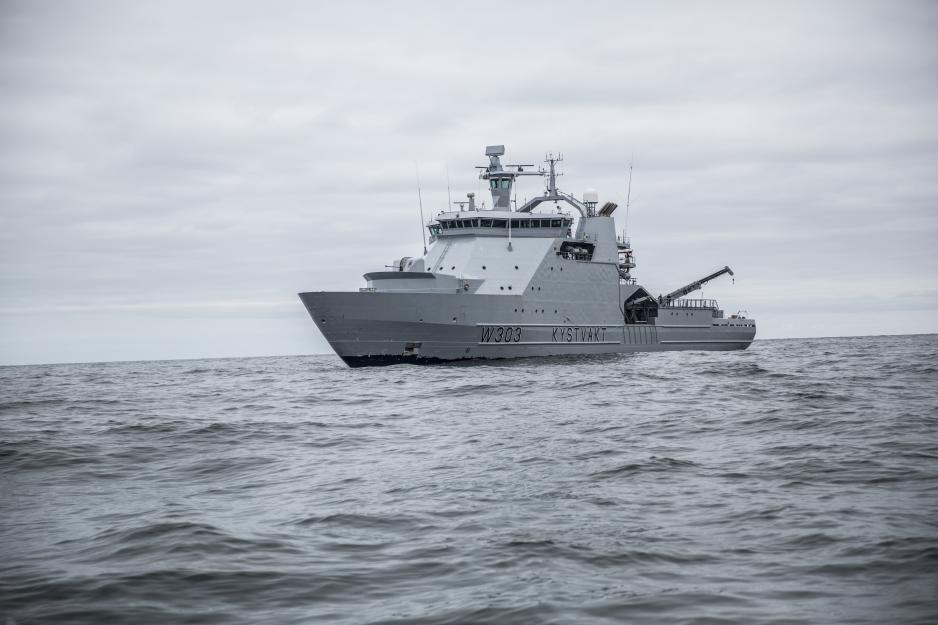Op-Ed: Need debate on the Svalbard Treaty

Over the last weeks, Svalbard has appeared in several headlines in Norwegian media. This October, the Russian newspaper Kommersant claimed that a national security report by the Russian defense ministry said that the Norwegian Svalbard policy is a source of conflict that could lead to war. Russia is not the only actor who disagrees with the Norwegian Svalbard policy. It is therefore no surprise that the Russian government thinks this policy could lead to conflict.
In an op-ed, the newspaper Nordlys writes that "the aggressive Russian rhetoric about Svalbard is a source of concern". The news site Aldrimer.no claims that Russia has trained on an invasion of Svalbard. This story is cited in several Norwegian media channels up until the chief of the Norwegian Intelligence Service publicly denies it, calling it a mishmash of different claims and stories.
Dramatic headlines about Russian actions in the Arctic are not a new phenomenon. It appears that the Norwegian media and Norwegians in general are under the impression that Norway is some sort of saint that always acts according to international law and norms. However, when it comes to Svalbard, the Norwegian policy is highly contested, not just by Russia.
Russia disagrees with several aspects of the Norwegian Svalbard policy, but the biggest controversy is over the interpretation of the Svalbard Treaty and the area outside the territorial waters of 12 nautical miles. While the Norwegian government claims that it has certain legal rights in the ocean around Svalbard, Russia holds that the principle of non-discrimination from the Treaty also applies in this area. In other words, the Norwegian government claims that the rules of the Law of the Sea are applicable around Svalbard in the same way as around mainland Norway.
The Svalbard Treaty of 1920 gives Norway sovereignty over the archipelago, but also provides the citizens of the signatory countries (including Russia) equal right to live, work and engage in business on Svalbard. The problem is however that the treaty is vague, and that it was signed at a time before the modern law of the sea was established. Consequently, it does not mention the area outside the territorial waters of Svalbard. Regardless, the Norwegian government holds that it does not apply outside the territorial waters due to the wording of the treaty.
Both the Russian and other governments have on several occasions expressed their disagreement with the Norwegian policy. In 1977, Norway established a fisheries protection zone of 200 nautical miles around Svalbard in order to maintain the resources in the ocean in a sustainable way and to regulate fishing in the area. Although the Norwegian government holds that it could have claimed a full exclusive economic zone in this area, it has so far only claimed the so-called temporary fisheries protection zone where Norway’s rights are limited and the non-discrimination principle still applies. Even though some would argue that Russia has benefited from the fisheries protection zone, the government formally holds that it constitutes a violation of the Svalbard Treaty.
Other countries, including the UK, Iceland and Spain have also protested the Norwegian fisheries protection zone, claiming that the Svalbard Treaty applies both in this area and on the continental shelf. Also the EU interprets the treaty to apply in the fisheries protection zone and on the continental shelf, and in 2016 the EU notified Norway that it had provided licenses to fish for snow crab around Svalbard. Norway reacted by arresting one of the fishing vessels and by protesting the pressure from the EU. Baltic fishermen have tried to bring the case to EFTA’s Surveillance Authority (ESA), but were rejected. Latvia has threatened to take the case to the international court in Haag.
In 2015, Russia protested the Norwegian opening of blocks for oil and gas in some areas of the Barents Sea. Russia claims that these blocks are situated on the continental shelf of Svalbard and that the Svalbard Treaty applies. Norway on the other hand, argues that this area is a part of the Norwegian continental shelf and that Norwegian officials do not have to consult with Russia or other governments when it comes to the oil and gas activity
Russian officials have on several occasions requested talks with Norway over Svalbard, but the Russian foreign ministry has said that it is not getting any response from Norway. The Russian foreign minister Sergey Lavrov expressed strong dissatisfaction over the lack of dialogue on Svalbard at a recent meeting of the Barents Euro-Arctic Council. Børge Brende then answered that "Norway is complying to every comma in the Svalbard Treaty".
Considering the fact that the Norwegian interpretation of the Svalbard Treaty is contested, it is quite astonishing that the Norwegian government continues to play hardball on this issue. Consequently, it is not surprising that the Russian defense ministry identifies this as a source of conflict. By stating this, Russian officials send strong signals that they disagree with Norway’s policy on Svalbard. The cooperation in the Arctic is strong and fruitful in many areas. To avoid that the relationship with Russia deteriorates and that tensions rise, Norway should consider bringing up the more complicated issues about Svalbard for debate.
